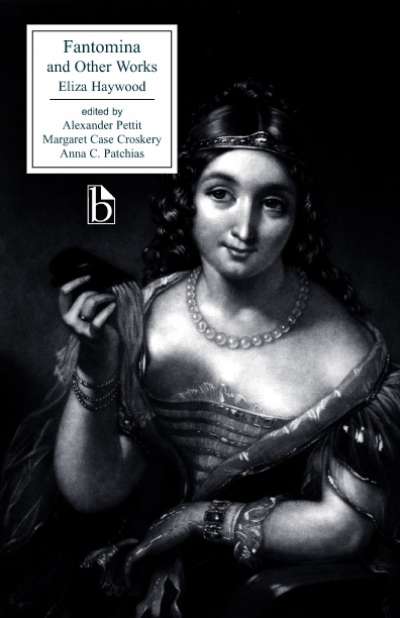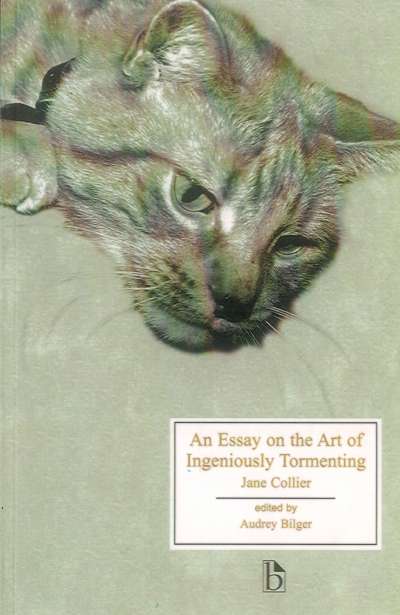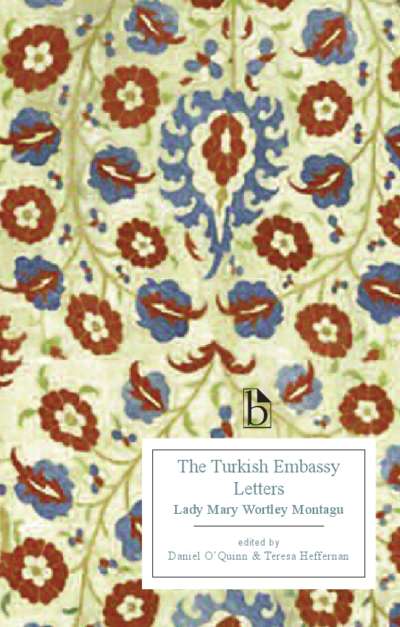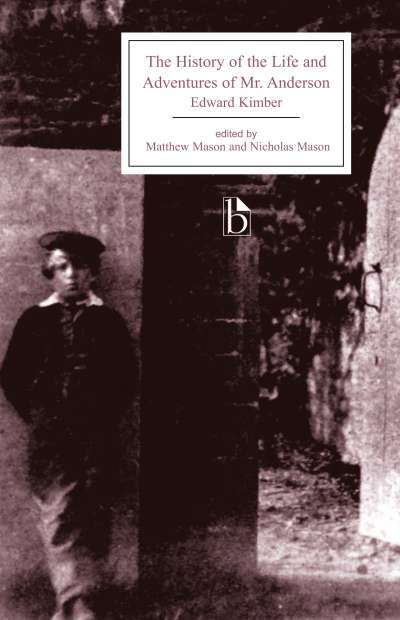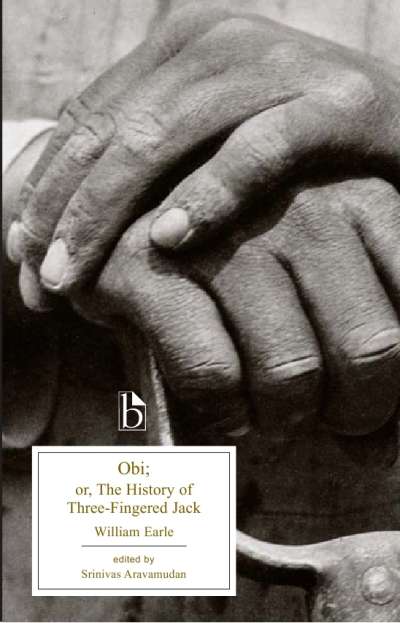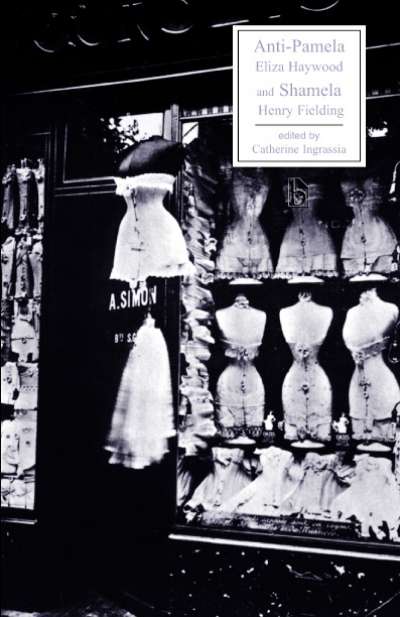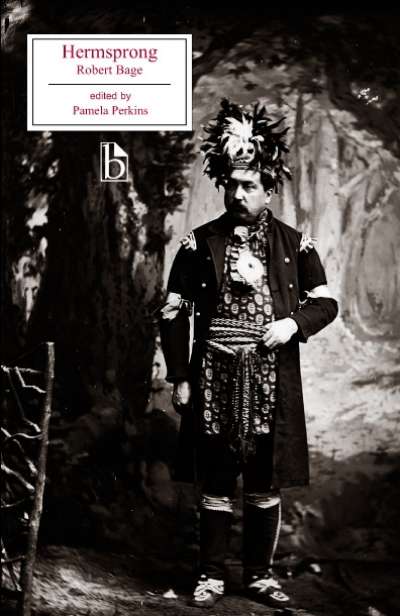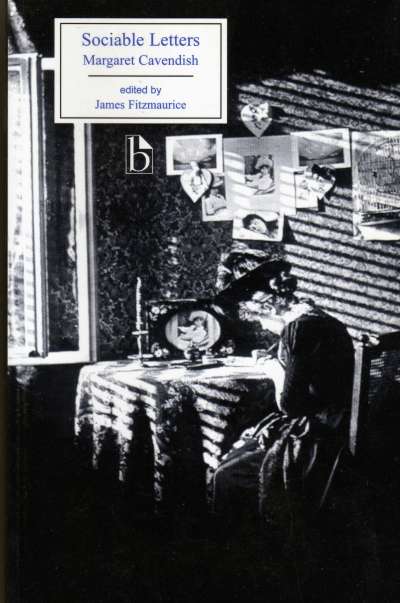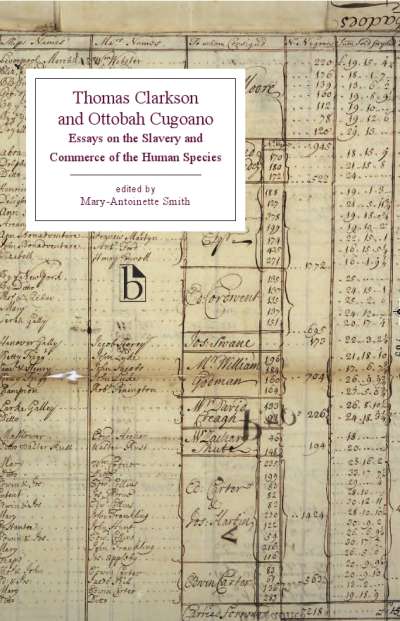The best-known work by Aphra Behn, Oroonoko is an important contribution to the development of the novel in English. Though it predates the British abolition movement by more than a century, it is also an early depiction of the dehumanizing racial violence of slavery; Oroonoko tells of a noble African prince enslaved and taken to Surinam, where he leads a violent revolt of the enslaved. This edition offers helpful annotations, an informative introduction, and contextual materials situating Oroonoko in the context of seventeenth-century slavery and the colonization of Surinam. The early reception of Oroonoko is also documented.
Comments
“Tiffany Potter’s excellent edition of Oroonoko arrives at a time when the history of the Atlantic slave trade is being scrutinized anew in both classrooms and the mass media. Potter deftly introduces Behn’s unsettling text and contextualizes it with seventeenth- and eighteenth-century voices that represent the full spectrum of contemporary responses to slavery: from horrifyingly matter-of-fact justifications of European domination to unforgettable firsthand accounts of abduction, enslavement, and brutal mistreatment. I have no doubt that this will be the preferred teaching edition of Oroonoko for years to come.” — Paul Kelleher, Emory University
“Tiffany Potter’s edition of Oroonoko makes this important text accessible to a wide range of readers. The introduction offers a concise biography of Behn as well as an insightful discussion of Oroonoko’s genres and reception. The text itself is helpfully annotated, and the supplemental materials provide essential contexts related to European understandings of Surinam and the slave trade. Potter’s edition will doubtlessly become the standard text for generations of students.” — Christopher D. Johnson, Francis Marion University
“Potter’s edition marshals vital contemporary documents to illuminate the emerging contexts of global trade, enslavement, and colonial racism within which Behn carves her tale. The introduction, as well as gathering the scant information we have about Behn herself, emphasizes the emergence of racialized discourses that were mobilized to justify slavery and the colonial appropriation of distant lands. Potter’s footnotes offer a commentary perfectly pitched to make the strange elements of Oronooko clear to new readers.” — Kerry Sinanan, The University of Texas at San Antonio
”Tiffany Potter's new edition of Oroonoko is an ideal teaching text. In addition to Behn's novel, it offers a wealth of contextual material on Surinam in the seventeenth century, Africa in the seventeenth and eighteenth centuries, the slave trade, and eighteenth-century abolitionist narratives.” — Robert Markley, University of Illinois
“Aphra Behn’s Oroonoko is widely viewed as a foundational work of British literature: required reading for anyone interested in the development of the novel in English, early women writers, or the history of race, slavery, and colonialism. It is also dense, complex, and deeply strange; as Potter puts it, ‘truth, history, fiction, and fictionalization cannot be untangled with confidence.’ Potter’s edition does a brilliant job of navigating readers through Behn’s tangled engagements with notions of slavery, race, gender, and social rank, as well as with generic conventions borrowed from romance, the travel narrative, heroic tragedy, and an emerging literary realism. It is especially good at providing context for both Behn herself—the first professional woman writer in English—and her most famous work, with helpful selections from contemporary documents on the English colonization of Surinam, and on the slave trade and slavery in the seventeenth and eighteenth centuries. These are judiciously excerpted, and explained with incisive, crystal clear commentary; Behn’s text is annotated with equal clarity. The edition is perfectly pitched for the undergraduate classroom; it should be accessible to advanced secondary students and appealing for the general reader as well. This will be the preferred teaching text for years to come.” — Heather Keenleyside, University of Chicago
“This new edition provides the essential context to situate Oroonoko within English colonial projects and the English trade in enslaved Africans in the seventeenth century. Additional primary materials include the voices of formerly enslaved people through the writing of Quobna Ottobah Cugoano and oral histories of the slavery era of the seventeenth and eighteenth centuries from Suriname. … [W]ith contemporary responses to Behn and Oroonoko and a rich, informative introduction, this edition offers an invaluable cultural historical approach to Behn’s challenging novella.” — Mark Vareschi, University of Wisconsin-Madison
“Tiffany Potter’s timely new edition of Oroonoko combines an accessible version of Behn’s spellbinding text with a concise, well-chosen set of supplementary materials situating this fiction within the contexts of transatlantic slavery and British empire. Potter has a particularly judicious sense of both the force and limitations of Oroonoko as a document of the slave trade and as a subsequent touchstone for the abolitionist movement. This edition will be an excellent resource for specialized courses but also for general surveys alert to the urgency of these contexts for all literary study now. It will be equally valuable to general readers interested in the global origins of modern English fiction.” — Timothy P. Campbell, University of Chicago
“A good edition for students and researchers alike. Footnotes explain the basic meanings and facts; the text is clearly laid out, then framed with well-curated selections of documents about the Surinam colony and the conditions of slavery. Some of these contextual readings are chilling and some inspiring, some are by white Europeans and some by the descendants of abducted Africans, but they chime with moments in Behn's own text and fix them in the reader's memory. Tiffany Potter's introduction rightly brings out the contradictions that make Oroonoko a vital text in every sense, neither an escapist romance nor an antislavery tract: fragments of both jostle in the mind and heart of the fictional female narrator, at once credulous and skeptical, complicit in the colonial ‘we’ and revolted by it.” — James Grantham Turner, University of California, Berkeley
“Aphra Behn’s Oroonoko is a timeless book, one especially important for our times due to its exploration of the intersections of class, race, and gender in the seventeenth century and the legacies of capitalism, slavery, and colonization. Tiffany Potter’s introduction to Behn’s life and the novella’s story deftly untangles the complex layers of genre and seventeenth-century literary trends, politics, commerce, and religion that underwrite Behn’s narrative.” — Mona Narain, Texas Christian University
“The new Broadview edition of Oroonoko will be a valuable resource in a variety of courses, ranging from early modern literature and women’s studies to the history of transatlantic relations and the slave trade. It sheds illuminating light on a Restoration text that, as Potter affirms, offers ‘both emotional impact and intellectual provocation for modern readers.’” — Margarete Rubik, Early Modern Women


